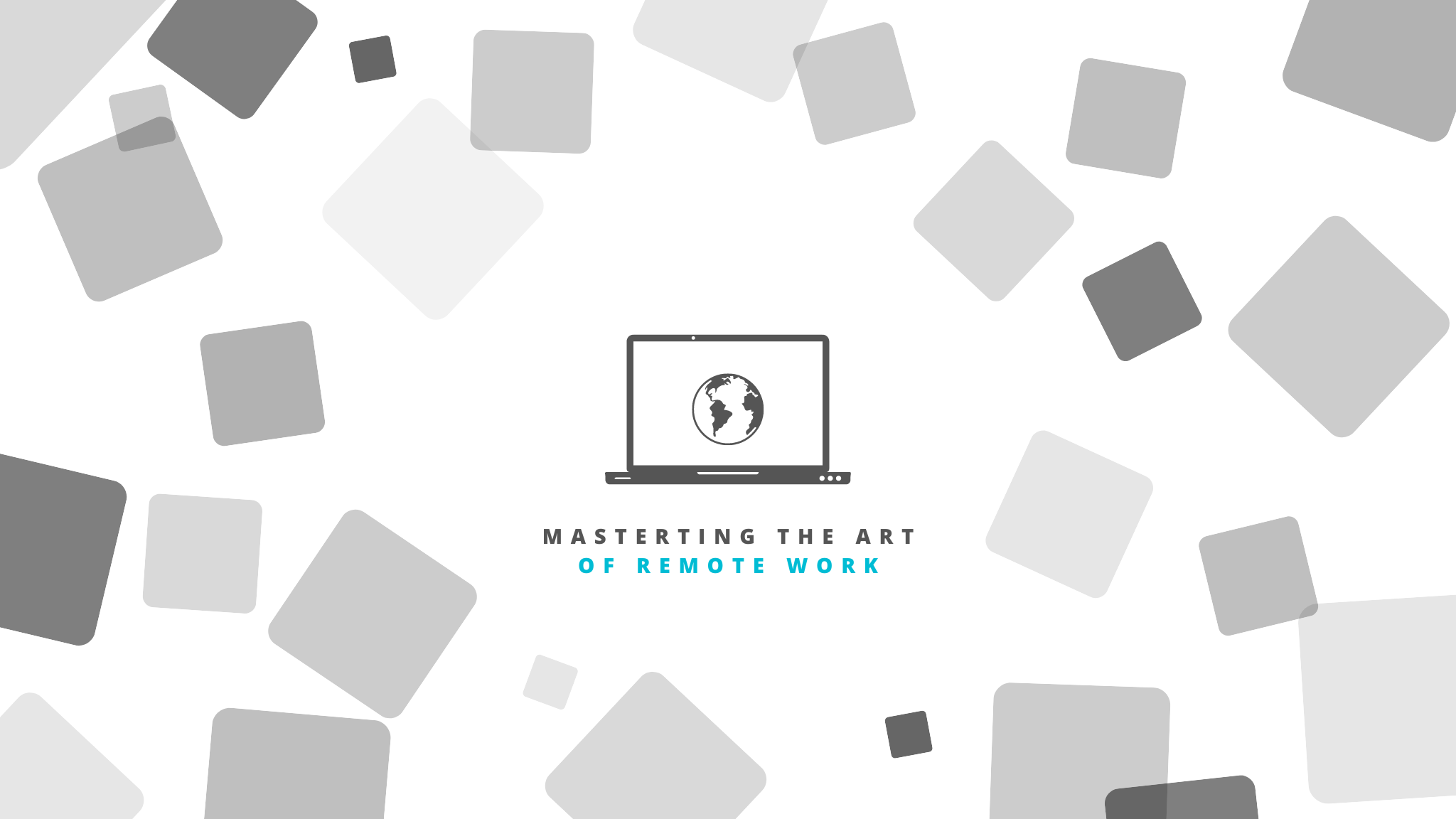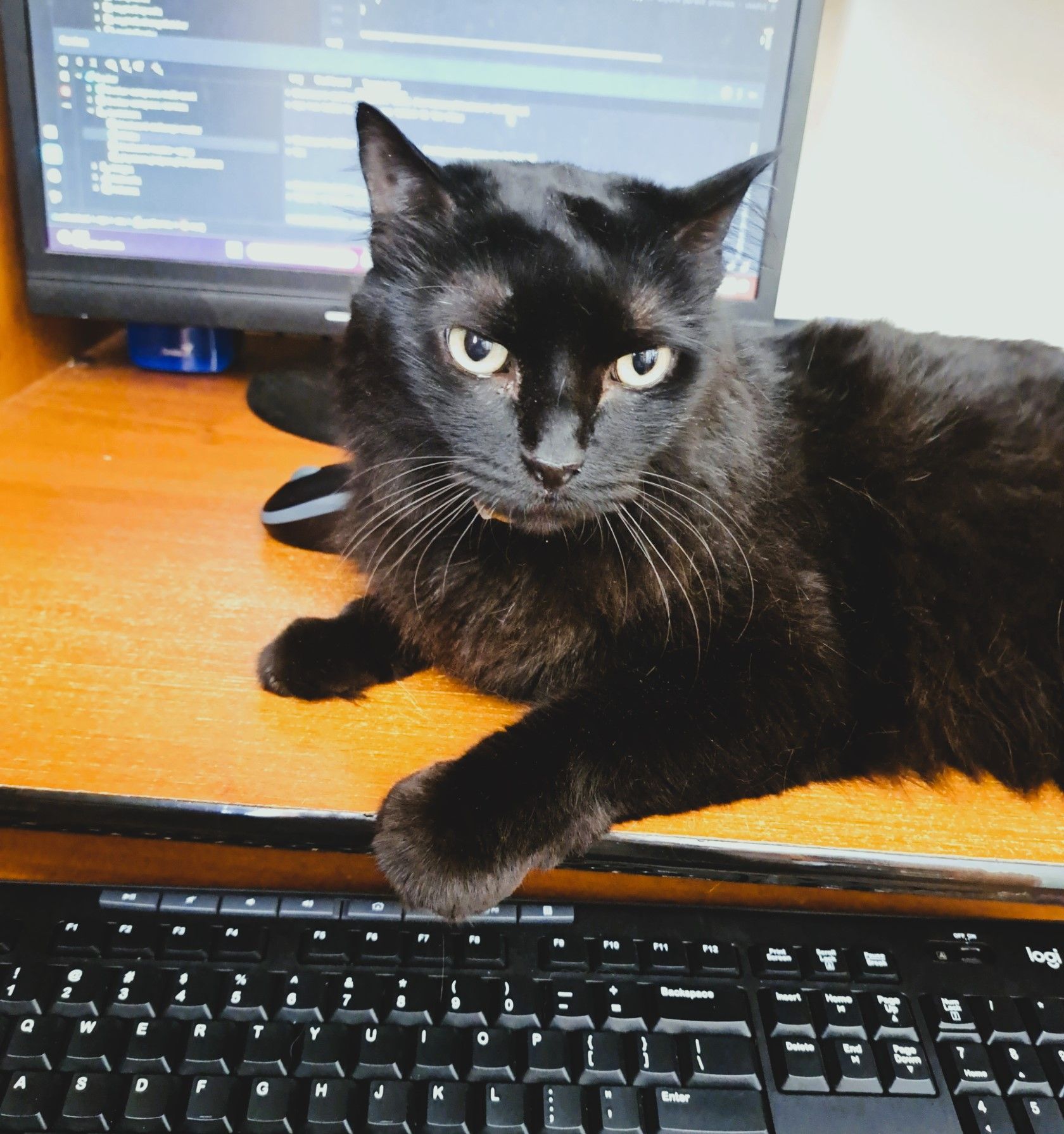Mastering the Art of Remote Work

In recent years, remote work has become increasingly popular, especially in the tech industry. Now it is not about a pandemic or reducing operating costs, companies have discovered that remote work allow them to find and hire talent anywhere in the work, and if you are reading this, you are probably one of those candidates that they are looking for.
In this article I'll explore the key aspects of mastering the art of remote work and provide actionable tips that I’ve learned in my career to help you succeed in this modern work environment.
Remote Work is not for Everyone
Remote work is great and has many benefits. However, it's important to realize that remote work is not for everyone. While some people may excel in a traditional office environment, others may find it difficult to stay motivated and productive when working from home. This could be for a variety of reasons, including a lack of structure, distractions, or difficulty separating work and personal life.
In addition, working remotely can be isolating, leading to feelings of loneliness and disconnection for some employees. Without the social interaction and support of an office environment, remote workers may struggle to maintain their mental health and well-being. In addition, working remotely requires a high level of discipline and self-management that not everyone has. This can lead to missed deadlines, decreased productivity, and ultimately dissatisfaction with remote work as a whole.
With that in mind, here are some tips for working remotely.
Set Up a Dedicated Workspace
I'm tired of seeing pictures of people supposedly working remotely from a pool or beach, with a laptop at the water's edge, warming up under a hot sun that's so bright they can't see the screen clearly. Obviously, this is no way to work.
Creating a comfortable, dedicated workspace is critical to staying focused and productive while working remotely. Make it private and try to let everyone know that you are working even though you are at home. Invest in ergonomic furniture, organize your workspace, and create an environment that encourages concentration with proper lighting, minimal distractions, and personal touches.

My setup is not that big. It's just two displays, a wireless keyboard and mouse, a comfortable chair, and a mini PC. No lights, no stickers, no plants, no books, etc. I love it clean. But feel free to add whatever you want to yours to keep your mind focused and inspired.
Establish a Routine
People are surprised when I can explain my days from Monday to Friday in great detail. It's not that I'm organized, it's just that having a routine is ideal for working remotely.
The boundaries between life and work become even more blurred when you work from home. That's why I recommend setting your work hours, including breaks and a designated lunch time, and having a morning and evening routine to help you transition between life and work.
In my case, I usually look at some of my side projects before work, and when it's time to start work, I turn on slack, look at the messages, and start working. I usually take a 10 minute break after each meeting and a 1 hour lunch break. The end of the workday is close to my gym time, so I have a limit that forces me to stop working.
Communication is the Key
Effective communication is essential when working remotely. Keep your team informed through a variety of channels, such as video calls, messaging apps, and project management tools. They should know you are there, be proactive throughout the day with updates, and ask for help when they need it. The sooner you do this, the better, because you may not get an immediate response.

If you want to be successful working remotely, you have to let go of immediacy. Embrace asynchronous communication and respect your colleagues' time zones and schedules. Sometimes it is frustrating, especially when something is urgent, but 99% of problems are not. A simple message is all it takes to report a problem; just work on something else while you wait for a response.
Embrace Flexibility and Adaptability
Anything that can go wrong will go wrong. Working remotely can present unexpected challenges, such as technical issues, changing project requirements, or personal disruptions. Embrace flexibility and adaptability to successfully overcome these challenges.
In this adventure you will find typical phrases such as "Are you there?", "Can you hear me? ", "Will you join us?", etc. Remote communication looks like a game of Ouija. It's okay, take a breath and practice patience and empathy with yourself and your team members.

Prioritize Self-Care and Mental Well-being
I repeat this because it's important to clarify. Working remotely can blur the lines between work and home. Prioritizing self-care is essential to maintaining mental well-being and overall productivity.
Say no to tasks or meetings that don't align with your priorities or workload. Delegate when you have too many tasks. Take regular breaks throughout the day to rest, stretch, or engage in a non-work activity.
Master this point and your energy will be almost limitless day after day. Burnout plagues those who forget the importance of disconnecting from work. Doing other things you are passionate about will fill your heart with emotions that will energize and motivate you to do your best in everything you do, including work.
Mastering the Art of Remote Work
There are many key aspects to mastering the art of remote work. I may have forgotten some of them, but I assure you that mastering the ones I have mentioned is enough to start transforming your career and enjoying your experience with this modality of working.
Tell me about your experience, how you would improve it, and if you have any advice for people who work or want to work remotely.

